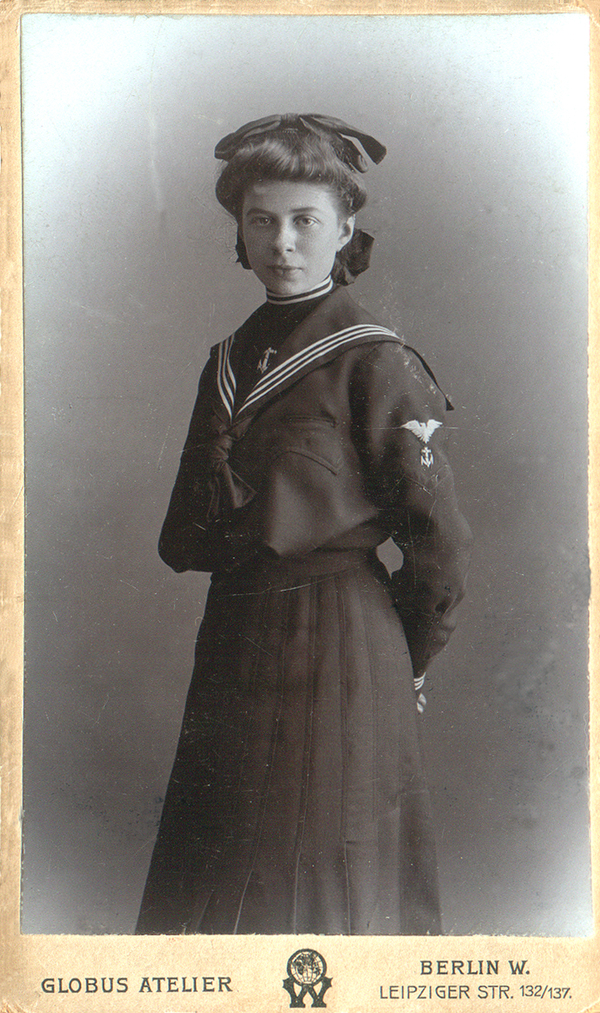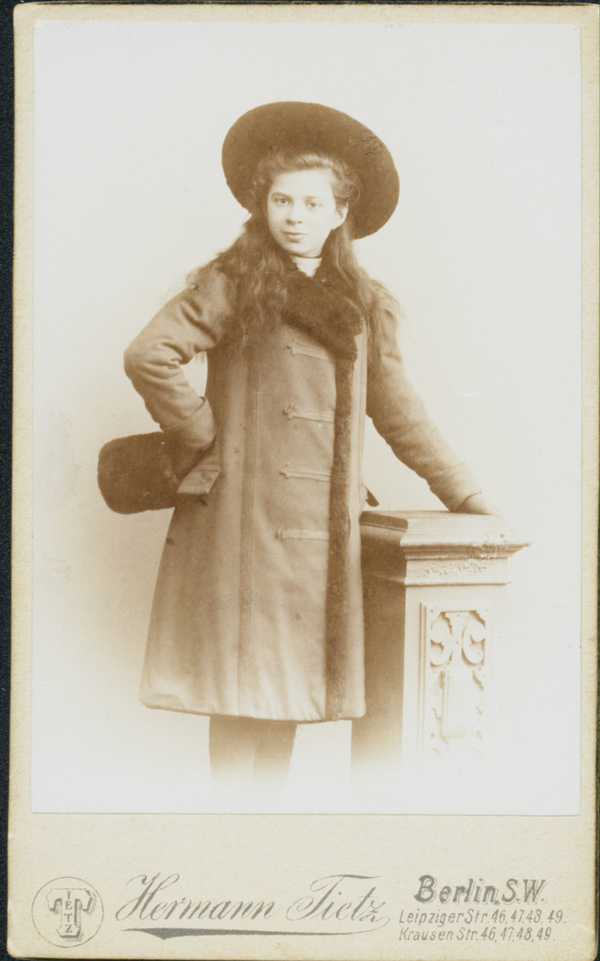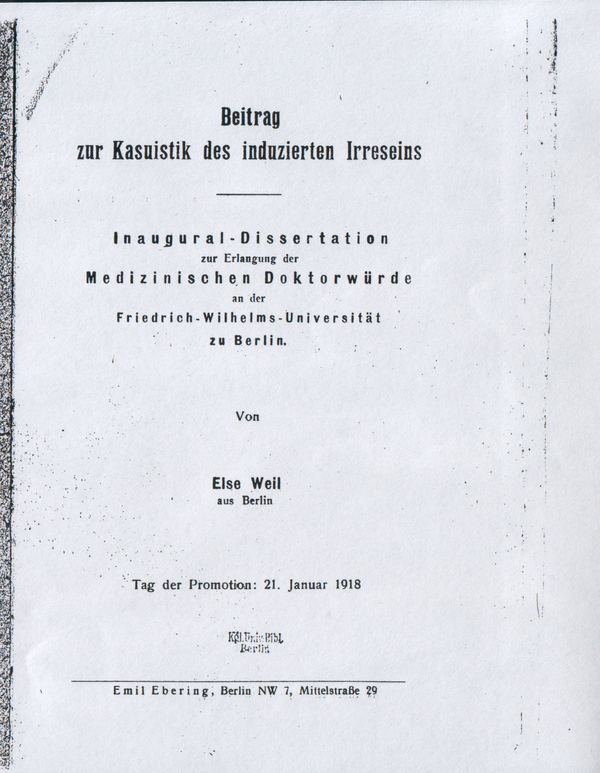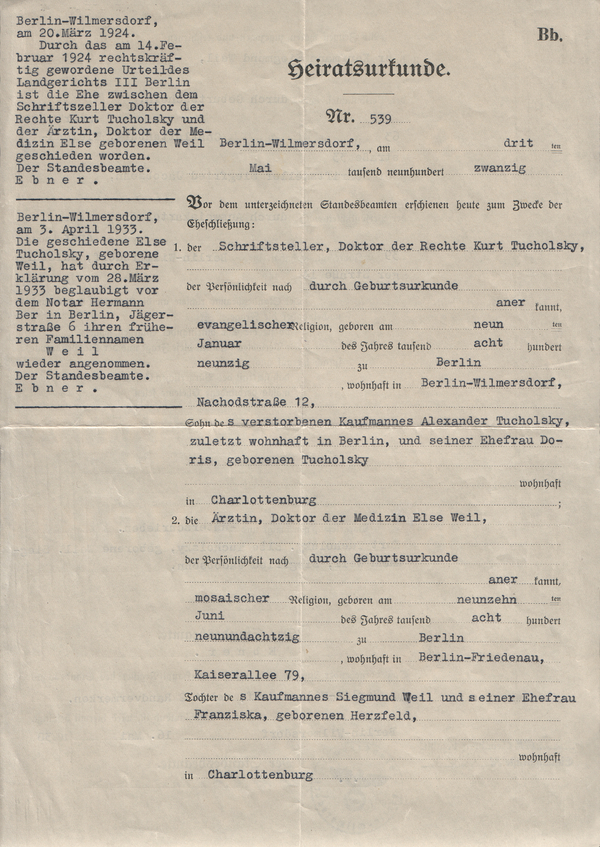Audio guide for reading
Audio guide for reading Who was this Claire? This young woman travelling to Rheinsberg with the 21 year-old law student Tucholsky in 1911 and who distinctively shaped the mood of the narrative “Ein Bilderbuch für Verliebte”.
Author Gabriele Tergit knows:
Stimme 1
Else Weil was born in 1889 in Berlin. Her parents were Jewish. After finishing school she was one of the first women in Prussia to start studying at the University of Berlin. 1917 she graduated as medical doctor and received the license to be a practitioner. Until 1933 Weil worked with interruptions as a doctor but lost her doctor’s license in December of that year since she was Jewish. She then jobbed as a housekeeper and decided in October 1938 to emigrate to France. Else Weil lived first in Paris but had to flee from the advancing Nazi troops to the unoccupied part to Aix-en-Provence. On the September 3, 1941 Else Weil wrote to her brother about the stations of her flight.
“Were I’m concerned, I’m not doing badly. I was, as all women with my background and without children, in the camp of Gurs. I volunteered as a doctor and therefore I was granted privileges and released early. I returned to Aix, where many of my friends live.”
In the summer of 1942 French authorities arrested Else Weil and 23000 other stateless Jews and handed them over to the German occupants. Transports left the train station “Du Bourget/Drancy” every second day in September and headed for Auschwitz. More than 1000 Jews with over 100 children among them were crammed into the waggons. Else Weil is listed for transport on the September 9, 1949 (as) number 49:
![[Translate to Englisch:] Kurt Tucholsky Literaturmuseum [Translate to Englisch:] Kurt Tucholsky Literaturmuseum](/fileadmin/_processed_/4/c/csm_logo-ktm_adccaface9.png)









